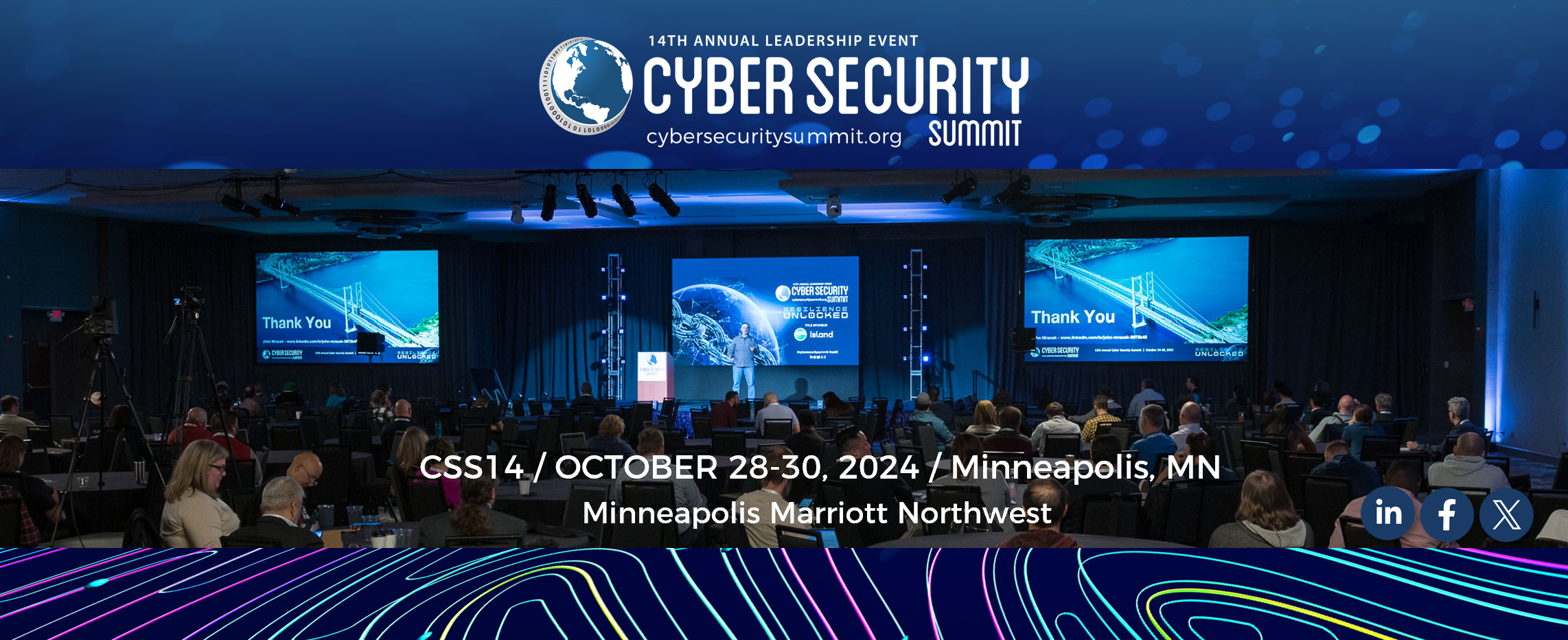
5.17.23 > Kristine (Kristy) Livingston
This year the Cyber Security Summit theme is “Resilience Unlocked”. As we discuss and plan cyber resiliency in our security programs, leaders must prepare for resilience on their teams, the careers of the people on their team, and their own lives.
Resilience in our Teams:
Resilience is the preparation for when things do not go as expected. Many time we are focused solely on the technology or the business process, but we should remember the people that perform the tasks as well. When we lose people due to layoff, injury, or illness our teams must be ready to “pick up” for team members that are missing. Prepare your teams to weather the possible challenges. Look for ways to cross train members from teams within your same leadership, or other teams in the organization, where they may have a similar skill set. Look for people who want growth and opportunities. If you don’t have one already, think about creating an internship program or developing a special project that is helpful for your team, but is offered to someone from another team. Someone looking eager to grow their skillset and eager to take on a different yet challenging opportunity.
Resilience in our Team Members:
No one wants to lose people on their team, sometimes it feels like losing family. There are a few things you must do for your team members if you are going to be a strong and resilient leader. The first is to share honest feedback with them about their strengths and opportunities. Help them by shining your flashlight of wisdom on things they are good at but might not see. Create opportunities for them to grow and learn in all areas, with the guidance that sometimes building on one’s strengths will far exceed trying to build upon weaknesses.
As leaders we want to provide training opportunities even when there is a limited budget. Take advantage of the free training so that your team members can improve their skills. Microsoft, Amazon, and Google all have free training to take advantage of. Also do not forget to connect with your business vendors/partners to make sure your team members are included in any training or webinars that may be offered. Try a team capture the flag event to include some friendly competition.
Make sure you are creating equal time and opportunities surrounding training. People should have reasonably similar amounts of work time they can dedicate to training or studying for a new certification. This can remove bias for those that feel that work time is only for working where others feel work time is for personal development as well. By providing clear expectations for team members this can remove any bias surrounding workloads and professional growth expectations.
Resilience in our Ourselves:
Resilience in ourselves is bigger than just our career, it is also ourselves and our families. Finding the perfect work-life balance can be elusive because the balance is unique to each of us. This is where perspective can play a large role. Perspective comes from where we have been in life and the challenges we have had to face to be where we are today. Our truths and perspectives are how we see things, we must be open to seeking other paths and learn the perspectives of others to help us weather the storms of our careers and lives.
Early in my career I suffered a layoff, technically I chose it due to seniority, but either way I was out of a job in 2008. I was bored and suffered from lack of fear. I wanted something different and didn’t know what it was. I went back to school and found Century College (where I have been an adjunct for 10 years). Seeing my layoff as an opportunity and using that to my advantage, opened doors that I didn’t know about. This single decision changed my entire career trajectory and led me to the path I am on today.
Networking is an area that will help your career be resilient. Join a club or any organization that supports the ideas you hold. Participating in many of these organizations will create opportunities by meeting new people. It might go unnoticed at first but will end up leading to your next opportunity. I have met many professional peers this way and have provided them with opportunities as they have done the same for me.
Create opportunities for yourself by asking for your own stretch projects. Ask a peer if you can assist them so you can learn their area and be a better partner to them. Challenge yourself by finding a mentor and sponsor that can provide you with feedback. Last year during the Cyber Security Summit we discussed creating your own “Board of Directors”. This idea of receiving feedback from trusted sources challenges us to think critically about the decisions we are making to drive towards our given outcome.
By preparing for the unexpected twists in our teams and ourselves, we make the impacts of loss and change more easily absorbed and turn them into opportunities for growth. This is how WE become a resilient workforce.
Kristine Livingston, MSST CISSP, EnCE | Sr. Manager, Information Security
Kristy Livingston is a Senior Manager of the Cyber Security Operations Center at Sleep Number and Adjunct Professor at Century College. She has 12 years of cybersecurity experience and has held leadership roles overseeing, data governance, vulnerability management e-discovery and incident response. Kristy holds a master’s degree in Secure Technologies (MSST) from the University of MN Leadership Institutes and industry certifications including CISSP and EnCE.
You can connect with Kristy here at the Cyber Security Summit at https://www.cybersecuritysummit.org/speakers/kristy-livingston/
And on LinkedIn at https://www.linkedin.com/in/krlivingston/
